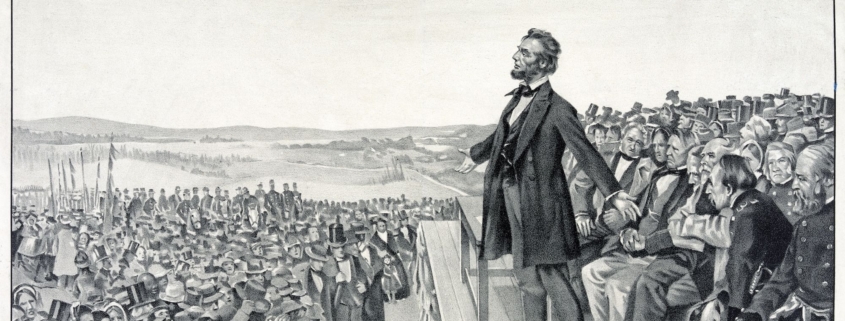The Gettysburg Address, Rhode Island Redux
(This commentary originally appeared in the Providence Journal on November 19, 2020)
Democrats seized control of Rhode Island’s General Assembly in the 1930s. Since then, the left has systematically drained wealth and industry from our once prosperous state. Ever-increasing taxes and regulations, combined with overt special-interest favoritism, have driven countless fellow Ocean Staters from our shores.
And now, still reeling from a pandemic, they seek to worsen matters by imposing massive new taxes and debt obligations to salvage the state’s budget, at the expense of families and small-businesses.
This Gettsyburg redux remembers those who Rhode Island has lost to other states:
Four score and seven years ago our fathers brought forth on this continent, a new nation, conceived in Liberty, and dedicated to the proposition that all men are created equal.
.
Now we are engaged in a great civil war, testing whether that nation, or any nation so conceived and so dedicated, can long endure.
.
We are met on a great battlefield of that war. We have come to dedicate a portion of that field, as a final resting place for those who here gave their lives that that nation might live. It is altogether fitting and proper that we should do this.
But, in a larger sense, we can not dedicate — we can not consecrate — we can not hallow — this ground.
The brave men, living and dead, who struggled here, have consecrated it, far above our poor power to add or detract.
The world will little note, nor long remember what we say here, but it can never forget what they did here.
It is for us the living, rather, to be dedicated here to the unfinished work which they who fought here have thus far so nobly advanced.
.
It is rather for us to be here dedicated to the great task remaining before us — that from these honored dead we take increased devotion to that cause for which they gave the last full measure of devotion — that we here highly resolve that these dead shall not have died in vain — that this nation, under God, shall have a new birth of freedom — and that government of the people, by the people, for the people, shall not perish from the earth.
— Abraham Lincoln, Nov. 19, 1863
Four score and seven years ago our fathers brought forth on this state, a new political majority, conceived in patronage, and dedicated to the proposition that all special interests are created more equal.
Now, we are engaged in a great war of cronyism, testing whether that state, or any state so conceived and so dedicated, can long endure.
We are met on a great battlefield of that war. We have come to execrate a portion of that field, a final resting place for the taxes of those here who were forced to give their hard-earned treasure that that state’s insiders might thrive. It is altogether unfitting and improper that we should accept this.
But, in a larger sense, we can not tolerate — we can not consecrate — we can not hallow this corrupt sufferance.
The industrious men and women, living and dead, who emigrated from here, have disavowed it, far above our poor power to retain them in our state.
This state will little note, nor long remember when they lived here, but it can never forget why they left here.
It is for us, the remaining, rather, to be dedicated here to the unfinished work which they who fought for their happiness here have so nobly reminded us.
It is rather for us to be here dedicated to the great task remaining before us — that from these departed patriots we take increased derision to that ignoble cause for which they were taxed the last affordable measure of income — that we here highly resolve that these emigrants shall not have fled in vain — that this state, under God, shall have a new birth of freedom — and that government of the people, by the people, for the people, shall not perish from the state.
— Mike Stenhouse, Nov. 19, 2020



